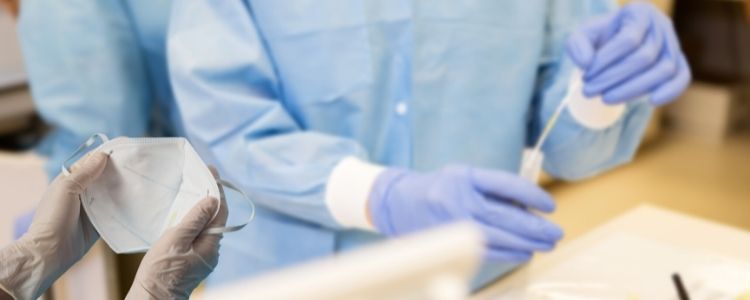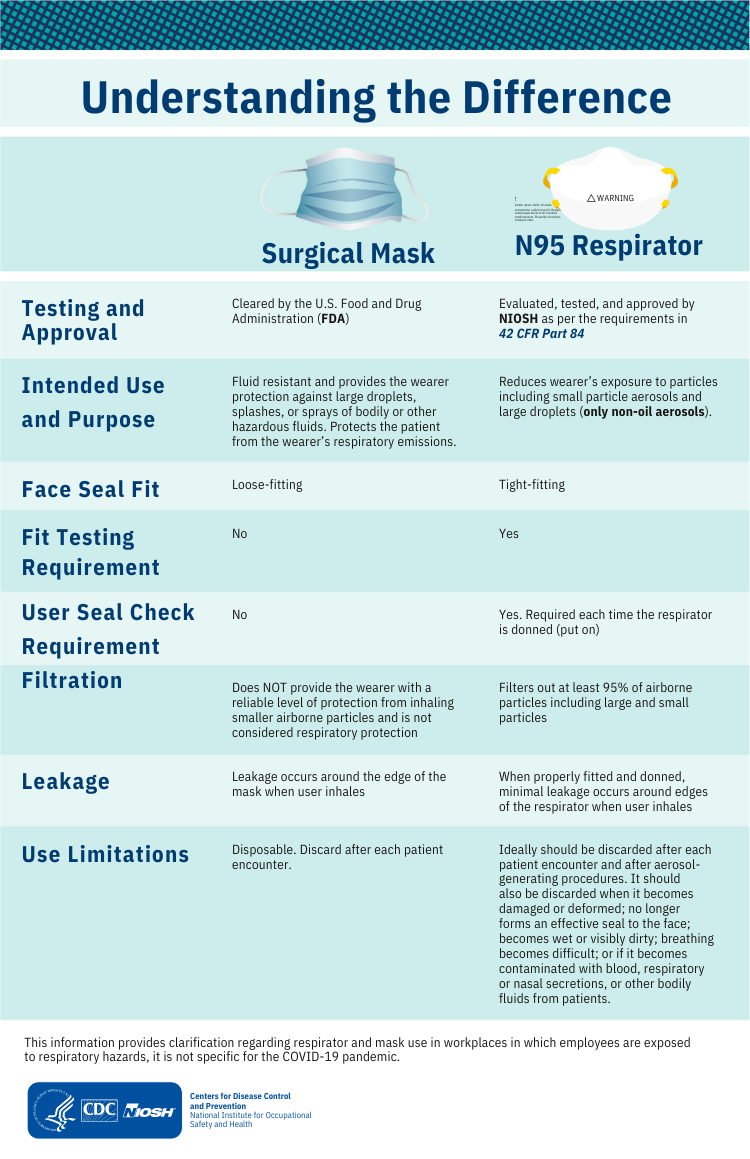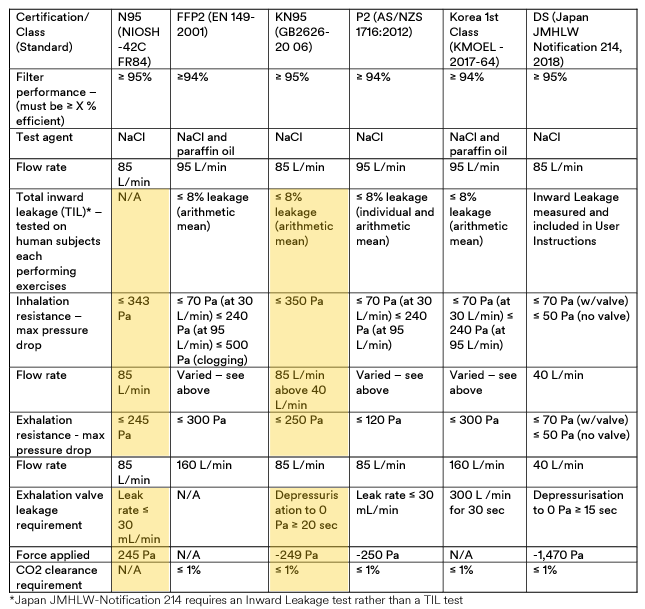N95 Masks Explained
As a doctor, clinic manager, purchasing agent, or everyday Canadian citizen, you've probably had to learn about different types of face masks.
While face coverings like earloop masks have been common in medical facilities for years, one mask has been deployed to combat virus outbreaks and variants more than most others - the N95 mask.
What are N95 masks? What makes them different from other masks? We at Surgo will gladly guide you through these answers and more.

What is an N95 mask?
An N95 mask is a respirator that has strong filtration of airborne particles.
What really sets the N95 apart from other mask types is that it is designed to have a very close facial fit. A fit test is required to ensure proper protection. The mask should be completely sealed around the wearer's nose and mouth.
What does the "N" in N95 stand for?
The "N" in N95 stands for Not resistant to oil. This is one of three categories of filter efficiency degradation assigned to particulate respirators.
A mask that is marked as N95 must have have an N-series filter that is at least 95% efficient at filtering particulates.
Who certifies N95 masks?
The National Institute for Occupational Safety and Health (NIOSH), a division of the CDC, certifies N95 masks under 42 CFR Part 84.
NIOSH rigorously tests manufacturer masks that are seeking a certificate of approval.

Does the "N" in N95 stand for NIOSH?
No, as mentioned above, the "N" stands for Not resistant to oil. However, NIOSH is the institution that sets and regulates air-purifying standards for N95 respirator masks.
How can I tell if my mask is certified?
NIOSH-Approved N95 masks should contain the NIOSH logo as well as other markers such as model number, filter class, and approval number. See the graphic below from the CDC for more information.
Note: Some manufacturers use counterfeit N95 masks. A list of those NISOH has identified as counterfeit can be found here. You can also check which are NIOSH-approved here.

What is the difference between an N95 and surgical N95 mask?
There are several differences between N95 and surgical N95 masks:
- The main difference is that surgical masks are generally designed to prevent particles from the wearer to be expelled.
- Surgical masks protect against droplet transitions.
- N95 masks are designed to protect against hazards that can be inhaled such as particulates.
- In some cases, N95 respirators can also be approved to wear as a surgical mask.
What is the difference between an earloop surgical mask and N95 respirator?
Click on the infographic below to view the differences between surgical masks and N95 respirators. (Source: CDC)
What is the difference between an N95 and KN95 mask?
Both masks are rated to capture 95% (or 0.3 micron) of particles. The main difference is that the N95 is the American standard while the KN95 is the Chinese standard.
According to 3M, it is "reasonable to consider China KN95 as "equivalent” to US NIOSH N95 and European FFP2 respirators."
The KN95 standard requires a fit test on real human beings while the N95 standard does not require a fit test.
One slight difference is that the N95 standard has stricter requirements for breathability (the ability for air to be breathed in and out of the mask) than the KN95.
View the chart below and note the highlighted differences.
Learn more about the differences between N95 and KN95 masks.
Which Surgo products are N95 NIOSH certified?
ALL N95 masks that Surgo supplies are NIOSH certified. We will never distribute N95 masks that are not certified by NIOSH.
What is fit testing?
Fit testing or a respirator fit test is conducted to ensure that a respirator mask properly fits the individual who will be wearing the mask.
Fit tests can be classified as qualitative or quantitative:
- Qualitative - Conducted using a test agent that is detected by the wearer's sense of taste, smell, or cough.
- Quantitative - Conducted using an instrument to ensure the respirator has a proper fit.
Do I have to get fit tested?
Yes, according to the Occupational Safety and Health Administration (OSHA), N95 mask wearers are required to be fit tested to ensure that masks properly seal while the mask is in use in the workplace (1910.134).
Where can I purchase N95 masks?
Surgo has N95 masks available, including surgical N95.
Why Shop Surgo?
We at Surgo are here to guide you to the right products so that you can get back to what matters - caring for your patients. If you have any additional questions about masks or other medical products, please contact us.






.jpg)










